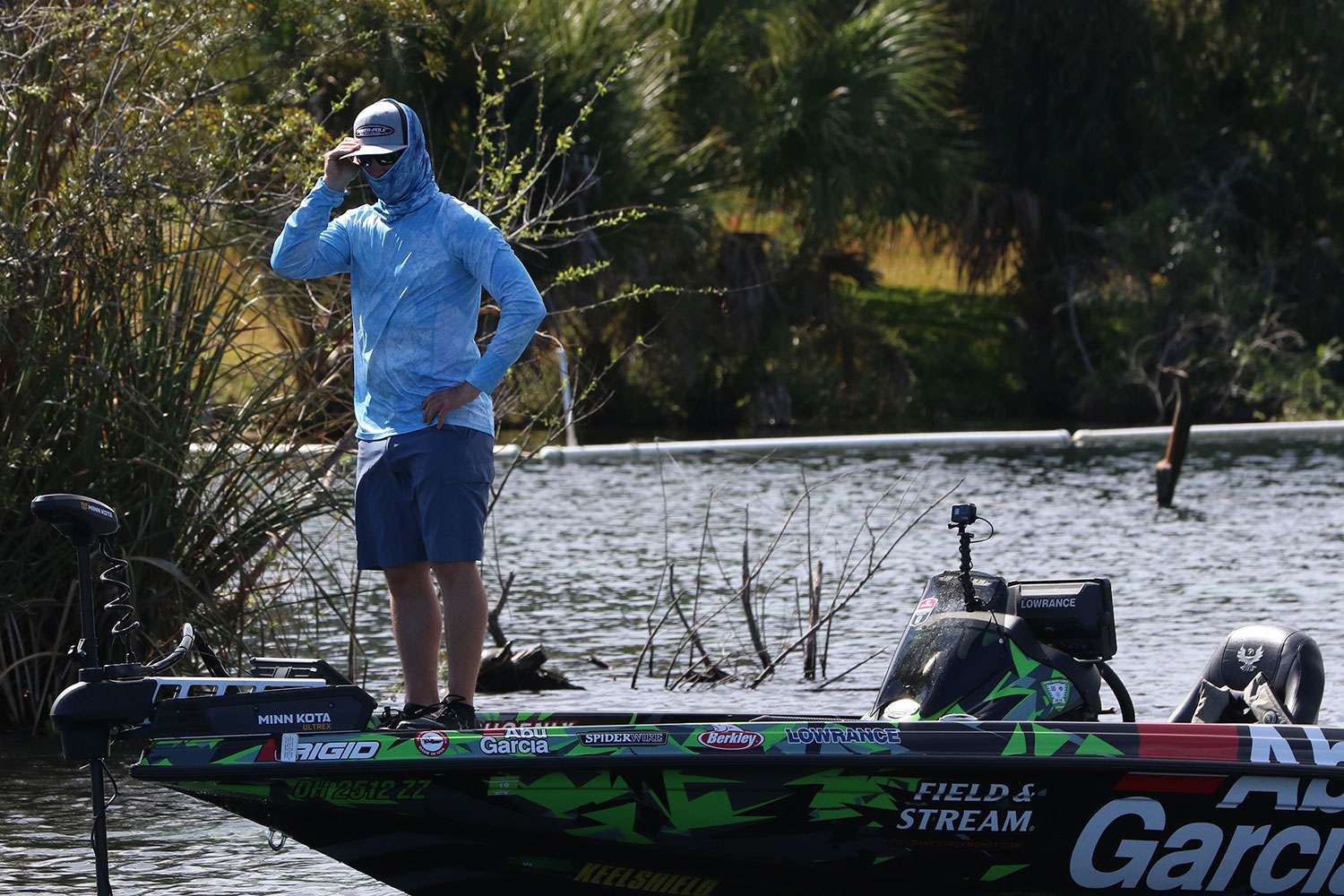
There are so many killer ways to catch bass these days that it’s impossible to master all of them. I make it a point to be as good as I can at one or two things and to try to make them work wherever in the country I happen to be fishing.
Year after year I see some guys fishing what they do best wherever they go and catching bass in lakes where what they’re doing isn’t supposed to work.
Elite pros Bill Lowen and Matt Herren are two good examples. Herren is a hot hand with a flipping rod. Lowen works his magic with swim jigs and shallow crankbaits. They always try to find water where they can use the techniques they excel at and have the most confidence in. They do an awesome job just about everywhere by sticking to their guns.
I’m at my best anytime I’m fishing shallow, dirty water with a flipping stick in my hands. That’s where my confidence lies. I also love sight fishing for spawning bass, but there’s only a short window for that.
Unfortunately, you can still screw things up even when conditions are in your wheelhouse. I tripped over my own feet at the recent Elite Series tournament at Lake Hartwell. The conditions were setting up for a bed-fishing brawl. I spent all of my practice looking for spawning bass. I was going to live or die by it.
I found plenty of big bass on beds on the lower end of the lake down near the dam. On lakes like Hartwell that have blueback herring, that’s where the bigger bass live. I didn’t think I could find the quality bass I needed to win by running upriver.
That plan backfired. We had some cold nights and a lot of the bedding bass I had found vanished when the tournament started. I was out after two days of fishing. I learned later that sight fishing upriver caught a lot of bass. I was on the right track by sticking with one of my favorite techniques. I just didn’t execute.
On the other hand, I’ve fished too many tournaments where fishing what I’m best at has paid off. Even in tournaments that are dominated by smallmouth in deep water, I look for shallow bass where I can do my thing. Guys who are really good at offshore smallmouth fishing might catch 20 or more bass a day. They’re going to beat me at that game. If I can find shallow bass, I’ll do better there than if I tried to do something I’m not as good at.
When I fish Lake Champlain I ignore the smallmouth and make the long run south to Ticonderoga where I can flip matted vegetation and throw a frog. I haven’t won there, but I have had some good showings.
A big advantage to having a confidence technique is that it can bail you out when a tournament is falling apart. I’ve pulled the plug many times on something that wasn’t working and saved the day by running to shallow water and going to work with a flipping stick.
Pulling the plug produced my very first tournament win several years ago while fishing a club tournament on an Ohio reservoir. I started out cranking shallow points on the lower end of the lake. At 11 a.m. my livewell was still empty. I ran to the upper end of the lake and flipped shallow bushes. In 90 minutes I caught a winning sack of 13 pounds.
When I bail out and go to something I have confidence in, it calms me down and prevents me from going into full-blown panic mode. That allows me to execute at a high level and maximize my chances of putting bass in the boat. If I tried to bail out with something off the wall, I would be too wound up to fish well, due to a lack of confidence.
It’s not that I can’t catch bass doing other things. I can fish just about any bait or technique reasonably well. When I get on, say, a finesse bite in practice, I can and have done well with it in a tournament. But if that bite dies, I’ll probably be heading for the shallows where I can wield my flipping rod.
You want to be a versatile angler. But you’ll fare better if you strive to be exceptionally good at one thing rather than the master of nothing.

